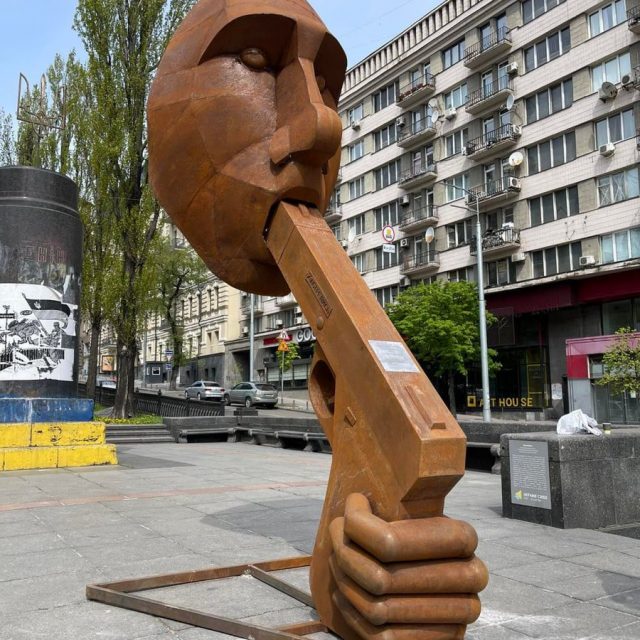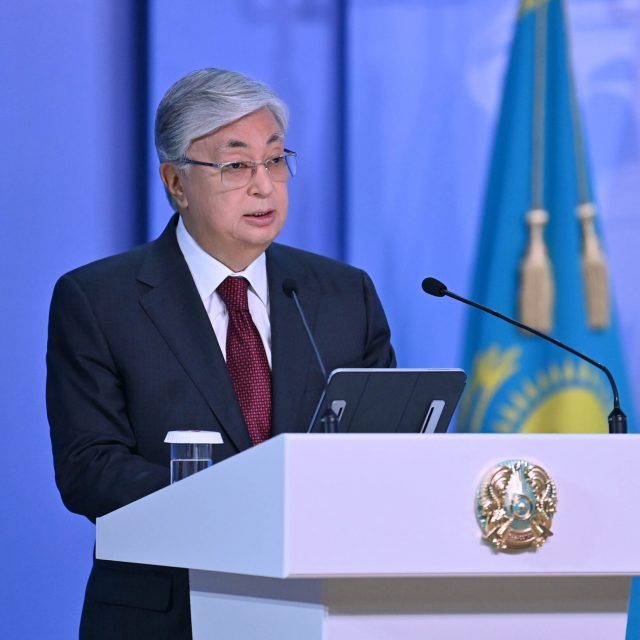Russia is deliberately introducing mercenaries, experienced in combat operations and committing terrorist attacks into Europe. The militants of the Wagner Group, notorious for their involvement in wars and conflicts around the world, occupy the palm of precedence. In particular, it is alarming that there is a sharp decline in the number of these mercenaries in Africa – according to preliminary estimates for January-March 2023, their number has decreased by 10%, that is, by about 500-800 people – well-trained fighters who can carry out assassinations, attacks and assaults. They are settling in EU countries and are becoming a source of hybrid threat. Their covert presence is a great danger for Europe.
In recent weeks, several pro-Russian rallies have taken place at almost the same time in Europe: in Spain (Bilbao) and the Czech Republic (Prague). Further rallies have also been announced, one of which is due to take place in early April in Brussels. Also, in early March, on the eve of the planned rally of supporters of the pro-Russian Shor party, a Wagner mercenary was found and detained at Chisinau airport with a weapon. Russia is intentionally sending its mercenaries to both EU countries and European countries neighbouring to Russia in order to use them as a catalyst for planned destabilisation. This is also supported by the dramatically increased frequency of such events in Europe, as well as the growing number of “Kremlin sympathisers” among ordinary EU citizens.
There are at least two known Wagner cells in Europe. The first, the largest, is in Serbia, near the border between Albania and Kosovo. The second one is in Estonia. But at the moment all indirect evidence points to the fact that Wagner mercenaries are already present in other European countries, particularly in Italy. For example, recently an article in the Italian magazine Il Foglio infuriated European media saying that Russia was planning to assassinate Italian Defence Minister Guido Crozetto and was promised $15 million for his killing. Dmitry Medvedev was allegedly personally in charge of the organisation and Wagner mercenaries were to be used as assassins. This fact is evidence of the presence of Russian mercenaries in Europe, which is inadequately protected against such challenges and threats.
A separate facet of the covert Russian threat to Europe is the increased recruitment of mercenaries to fight in the war against Ukraine, which the Kremlin calls a special military operation. Having gained combat experience on the front lines, these mercenaries may end up in European cities, where they will mimic ordinary Europeans. It is appropriate to draw a parallel here with Russia throwing its saboteurs into Ukrainian cities long before the full-scale invasion that Putin had been planning for years. These saboteurs were supposed to obtain important information for the Kremlin and make the right acquaintances so that once the invasion began, it could be used for military purposes. In Europe, Putin is pursuing a similar approach, but because of the disparity in military capabilities between NATO and Russia, he cannot dare to invade directly: his tactics are more flexible and multilayered. Russia is trying to create hotbeds of instability in Europe – particularly in the Balkans, where armed confrontations have been building up periodically since the summer of 2022 on the border between Kosovo and Serbia. And it is Russian mercenaries who play a key role in this destabilisation.
The recent pro-Russian rally in Bilbao, the largest city of the so-called “Basque Country” in Spain, was no coincidence. In addition to pro-Russian slogans, anti-NATO and anti-European imperatives were voiced at this rally – very characteristic messages for the Russian secret services, who use their agents of influence to potentially destabilise Europe. Today, the first practical manifestations of this hybrid threat can be seen.
The EU is saturated with militants and mercenaries, who are secretly moving in and settling in European cities. The sooner EU law enforcement and intelligence agencies address this threat, the better the chance of keeping a peaceful sky over Europe. Putin wants to divide, weaken, then plunge EU countries into chaos and violence. His mercenaries are waiting for a command to start this destabilisation – they have everything they need to plunge the streets of European cities into chaos and violence. All those who contribute to Putin’s terrorist plans must be identified and neutralised – it is a matter of survival for European civilisation.




